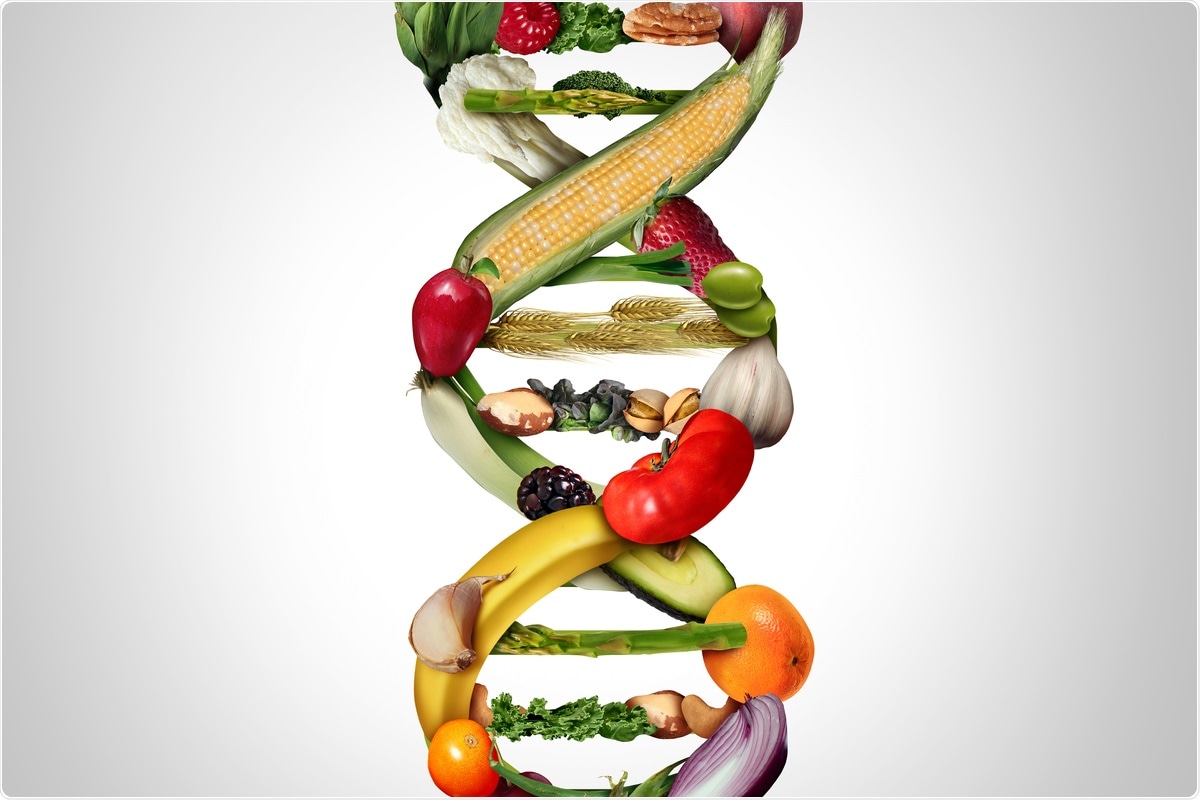Human eating behavior is associated with tasting, chewing, and swallowing food. The amount of time one spends on food beyond the act of eating and tasting, otherwise known as food involvement, is essential to the human food experience. Several pieces of research on the biology of human food behavior have focused on the moment of eating, the amount of food eaten and the type of food selected. A new study published on the bioRxiv* preprint server adopted a biological approach to assess if food-related behaviors and food involvement have a genetic explanation.
 Study: The genetics of eating behaviors: research in the age of COVID-19. Image Credit: Lightspring/ Shutterstock
Study: The genetics of eating behaviors: research in the age of COVID-19. Image Credit: Lightspring/ Shutterstock

 *Important notice: bioRxiv publishes preliminary scientific reports that are not peer-reviewed and, therefore, should not be regarded as conclusive, guide clinical practice/health-related behavior, or treated as established information.
*Important notice: bioRxiv publishes preliminary scientific reports that are not peer-reviewed and, therefore, should not be regarded as conclusive, guide clinical practice/health-related behavior, or treated as established information.
A preprint version of the study is available on the bioRxiv* server while the article undergoes peer review.
An online survey
Scientists evaluated this hypothesis using a genetically informative sample of adult human twins who answered questions about their food involvement through an online survey. Before this study, the study samples (twins) also participated in other studies related to understanding the sense of taste and smell. The current study was conducted during the summer of 2020 when most laboratories were closed due to the coronavirus disease 2019 (COVID-19) pandemic. This is why the survey was conducted remotely, contrary to the previous surveys, which took place in face-to-face settings with the supervision of researchers.
This research considered whether the participants contracted COVID-19 disease during the study period and how that affected their response. This aspect of the study is important because two of the most common symptoms related to COVID-19 disease are loss of smell and taste. In some cases, the sensory loss lingered even after the individual had recovered from the disease.
As stated above, researchers obtained data using an internet survey of a genetically informative sample of 419 adult twins. Among them, 114 were monozygotic twin pairs, 31 dizygotic twin pairs, and 129 were singletons. As many of the responders participated in previous studies associated with the evaluation of sense of taste and smell, researchers were able to evaluate the degree of engagement of these responders to assess the quality of their online responses.
The main findings
Researchers pointed out that some aspects of human food behavior may be inborn. The results of the online survey revealed the presence of genetic determinants for certain aspects of food behavior. Researchers observed that genetically identical twins shared more similarities in these types of behavior than fraternal twins. In this study, additive genetics described 16-44% of the variation in some measures of food involvement.
Some of the heritability components of cooking are chopping and mixing of food. Examples of food behavior that were found to be shared by the twins, in accordance with the common environment, were the scores for talking and thinking about food. However, a portion regarding food and eating was not determined by either genetics or a shared common environment. This portion exclusively remained specific to an individual experience, for example, setting the table and cleaning up afterward. Both these aspects were unrelated to the shared experience of genetics between the twins.
Thereby, love or dislike for cooking may be genetically controlled. In contrast, the family environment mostly influences topics of conversation related to food, and the willingness to set up and cleanup is an acquired property that might have developed through learning or instruction.
COVID-19 and food involvements
As stated above, this study has been conducted during the COVID-19 pandemic. Around 6% of the participants contracted the disease during the survey and lost their ability to taste or smell. However, only one candidate remained in that state while responding to the survey. Scientists found no difference in the food involvement scores based on whether the participants recovered or were still suffering from the COVID-19 infection. This result is encouraging because it indicated people showed no change in their food behavior irrespective of COVID-19 infection.
Scientists suspect that individuals suffering from long-COVID with prolonged loss of smell and taste might show less food enjoyment, but the effect of food involvement has to be determined in future studies. As previous studies have indicated that food involvement is a stable characteristic of an individual, scientists have to study further the overall effect of long COVID on an individual's food involvement.
Conclusion
One of the limitations of this study is its recruitment strategy. Another difficulty that the researchers faced was that in certain instances, a twin responded while the co-twin did not. Interestingly, the current research showed that the food behavior of COVID-19 recovered individuals did not change.

 *Important notice: bioRxiv publishes preliminary scientific reports that are not peer-reviewed and, therefore, should not be regarded as conclusive, guide clinical practice/health-related behavior, or treated as established information.
*Important notice: bioRxiv publishes preliminary scientific reports that are not peer-reviewed and, therefore, should not be regarded as conclusive, guide clinical practice/health-related behavior, or treated as established information.